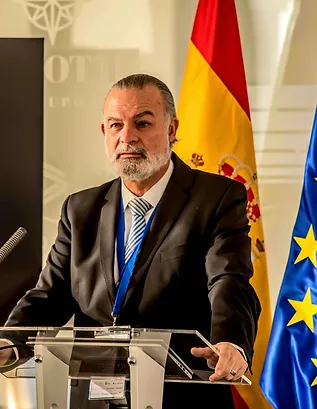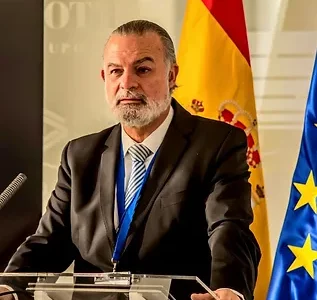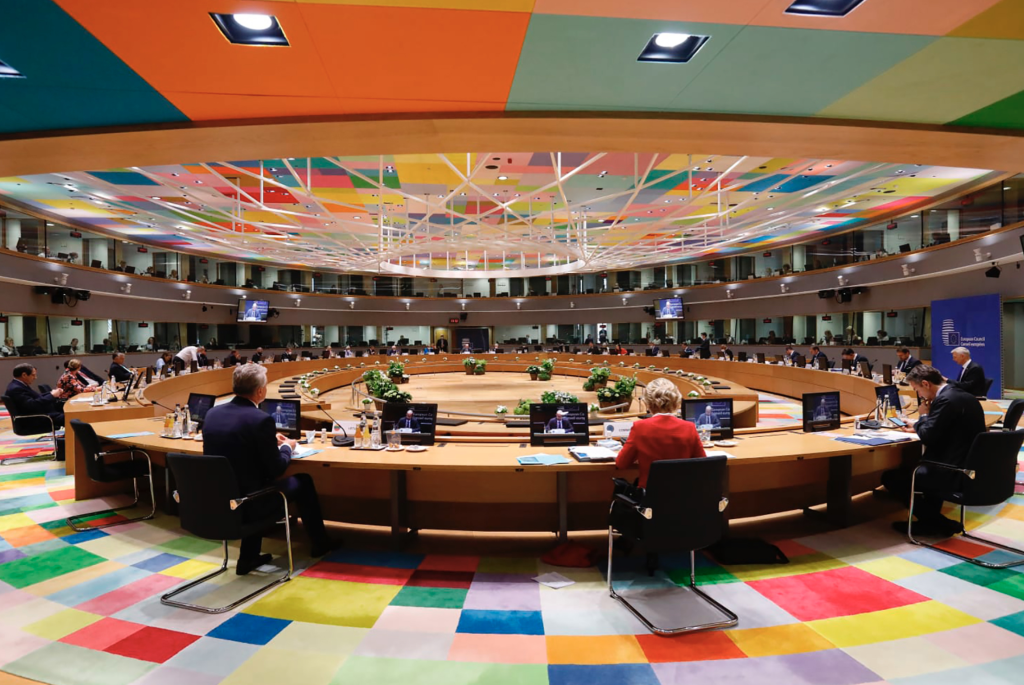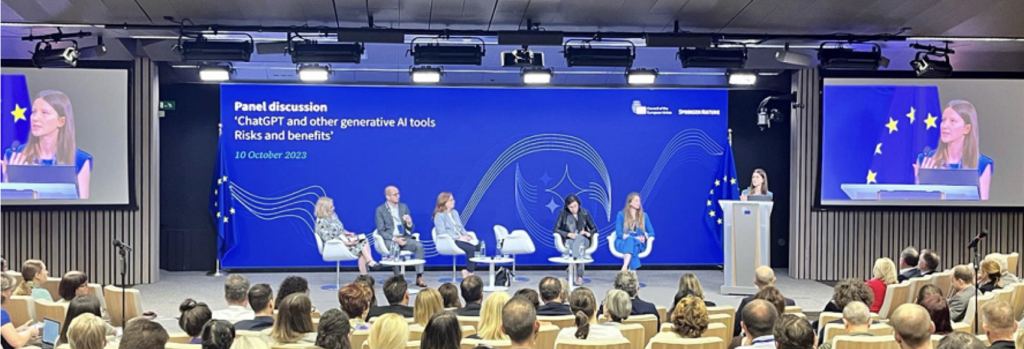JESÚS GONZÁLEZ MATEOS
SUMMARY OF THE EUROPEAN COUNCIL: TOO MANY EFFORTS SO THAT THE UNION DOES NOT BREAK UP

The European Council held on October 26 and 27 in Brussels has been more concerned with not breaking the unity of the EU, on the basis of minimum agreements and postponing major decisions, than with moving forward to solve the challenges and problems of the EU.
Two days of discussions of European leaders have served to take the temperature of the EU and the state of health of the current European project. This time the Gaza conflict has occupied a good part of the debates and if since the Hamas attack on Israeli positions three weeks ago, it has been complicated to reach a common position of the 27, it has been difficult to draft the final conclusions of the Council on the Middle East. Even on an issue on which there was virtual unanimity, such as the war in Ukraine, there was clear dissent, with Hungary and Slovakia being the main protagonists. And on the rest of the issues, migration or the budget of the Multiannual Financial Framework, the traditional kick forward to try to take a decision on the matter before the end of the year.
UKRAINE
Once again it occupies the first place in the conclusions of the European Council so that there is no international doubt about the support to the country attacked by Russia. The European Council reiterates its strong condemnation of Russia’s war of aggression against Ukraine, which constitutes a flagrant violation of the United Nations Charter, and reaffirms the European Union’s unwavering support for Ukraine’s independence, sovereignty and territorial integrity within its internationally recognized borders, as well as for Ukraine’s inherent right to self-defense against Russian aggression. The European Union shall continue to provide strong financial, economic, humanitarian, military and diplomatic support to Ukraine and its people for as long as necessary.”
In particular, the European Union and its Member States will continue to provide Ukraine with sustainable military support, notably through the European Peace Facility and the European Union Military Assistance Mission, as well as bilateral assistance from Member States. The European Council underlines the importance of Member States’ work and, as a matter of urgency, the need to accelerate the provision of military support to Ukraine to help meet its pressing military and defense needs, including missiles and ammunition, in particular under the initiative to provide one million rounds of artillery, as well as air defense systems to protect its population and its critical and energy infrastructure. All this despite the fact that Viktor Orbán, Prime Minister of Hungary, told the media that he was in favor of maintaining all lines of communication with Moscow, and Robert Fico, the new pro-Russian Slovakian Prime Minister, announced that he was cutting off his country’s military aid to Ukraine.
MIDDLE EAST
Reaffirming its members’ declaration of October 15, 2023, the European Council once again condemns Hamas in the strongest possible terms for the brutal and indiscriminate terrorist attacks that this organization has committed in various parts of Israel. The use of civilians as human shields by Hamas is a particularly deplorable atrocity. The European Council stresses in particular Israel’s right to defend itself in accordance with international law and international humanitarian law. It reiterates its call on Hamas to release all hostages immediately and without preconditions.
The Council also “expresses its deepest concern at the deteriorating humanitarian situation in Gaza and calls for continued, rapid, safe and unimpeded humanitarian access and for aid to reach those in need, taking all necessary measures, including humanitarian corridors and pauses for humanitarian needs. The European Union will work closely with partners in the region to protect civilians, provide assistance and facilitate access to food, water, medical care, fuel and shelter, ensuring that terrorist organizations do not misuse this assistance.”
It also alludes to the proposal of the acting Spanish President Pedro Sanchez: “The European Union is ready to contribute to reviving a political process based on a two-state solution, including through the Peace Day initiative, welcomes diplomatic initiatives on peace and security and supports the early holding of an international peace conference,” it states in the conclusions.
THE MULTIANNUAL FINANCIAL FRAMEWORK
The request made by the Commission to extend the European budget in view of the significant contributions that have had to be made because of the pandemic and the war in Ukraine, is vented by the Council in three lines: “Following an in-depth exchange of views on the proposal for the revision of the multiannual financial framework 2021-2027, the European Council invites the Council to push work forward, so that a general agreement can be reached before the end of the year”.
ECONOMY
The European Council underlined the need to accelerate work aimed at: a) developing the EU’s competitive edge in digital and clean technologies, focusing for example on innovation, research, education and skills; b) ensuring sufficient supply of clean and affordable energy; c) reducing key critical dependencies and diversifying supply chains through strategic partnerships; d) driving the transition to a more circular economy; and e) reducing the regulatory burden.
It also urges the co-legislators to quickly reach agreement on the Key Raw Materials Regulation, the Zero Net Emissions Industry Regulation and the reform of the electricity market configuration. In addition, it calls for rapid follow-up to the Commission’s recent Communication on how to address the shortage of medicines in the European Union, while ensuring better access to medicines and an innovative and competitive pharmaceutical sector. And it also calls, in the light of the Recommendation on critical technology areas, for work to start on joint risk assessments.
However, at the proposal of Germany, which wants to return quickly to the path of balanced budgets and austerity, it is requested that the dialogue between the EU institutions conclude as soon as possible the new rules of economic governance and fiscal rules, i.e. for the control of public deficits and debt reduction.
MIGRATION AND OTHER POINTS
Regarding the pending legislation on refuge and asylum, they settle it with two lines: “The European Council has held a strategic debate on migration and has taken note of the recent letter from the President of the Commission”. This in the midst of the migratory crisis in Italy and Spain.
And on other matters, the European Council strongly condemns the recent terrorist attacks in France and Belgium, in which Swedish and French citizens have been killed or injured. The European Union stands united and firm in the fight against terrorism, hatred and violent extremism of all kinds. The European Council calls on the institutions and Member States to take concerted action to mobilise all relevant policy areas at national and EU level to improve internal security, for example by strengthening police and judicial cooperation, the exchange of information through the full use of relevant databases, the protection of external borders, the fight against human traffickers and cooperation with third countries.
It refers almost at the end to the fight against climate change, reaffirming the EU’s commitment to the objectives of decarbonization of the planet. He shows his great concern for the situation in Kosovo, after the failure of the mediation carried out in parallel to the summit, with meetings in Brussels with the prime ministers of this country and Serbia. Finally, he also considered the conflict between Armenia and Azerbaijan and the situation in the Sahel to be serious.
All in all, therefore, two days of intense debates, difficult balancing acts to reach minimum agreements and many issues postponed for the December summit.
Jesús González Mateos, a Spanish journalist, is president of EditoRed.
This text is free to use. If you plan to use it, please cite the author and EditoRed.



